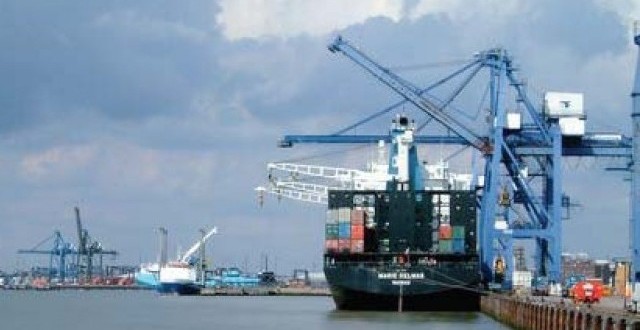LAHORE: Karachi Port Trust (KPT), used for almost 95 per cent of Pakistan’s international trade, has once again missed the deadline for consecutive 3rd years to design and implement environmental management system (EMS) at the ports, eventually complying with ISO international standards, KPT documents revealed.
According to the latest documents available with Pakistan Today, the new deadline has been set to March 2018 after missing the initial deadline of October 2017. Documents show that KPT management has spent over Rs 33.225 million in the account of getting certification of environmental management so far to move in compliance with ISO international standards, ISO 14001 and OHSAS 18001.
However, documents mention that the component has not been finalised yet to support the design and implementation of an environmental management system (EMS) for implementing a structured programme to improve environmental performance that follows procedures drawn from established international business management practices and principles of quality management systems. Through the systematic approach of an EMS, documents point out that KPT will have to (i) define and implement the organisation’s environmental policy; (ii) ensure compliance with prevailing environmental legislation and regulations; (iii) identify and manage its environmental impacts; and (iv) achieve continual improvements in environmental performance.
“The development and implementation of an EMS would allow KPT’s management to track its environmental performance, and thereby develop and adopt measures to improve performance” the documents denote.
In the context of accepted frameworks for environmental management systems, KPT’s EMS was to include components like (i) definition of a set of policies and objectives for environmental performance of KPT’s activities; (ii) identification of the environmental impacts and risks of the activities; (iii) establishment of programmes of mitigation and improvement measures and specific actions that address identified risks and impacts; (iv) establishment of an organisational structure to implement the program; and (v) monitoring and review of the effectiveness and performance of the impact and risk mitigation program.
The documents mentioned the defining (i) Design of EMS (ii) Implementation of EMS (iii) Gap Analysis and preparation for ISO 14000 Certification (iv) External Audit in order to reach ISO 14000 certification.
The documents point out that KPT has been facing a large number of environmental issues which require not only compliance with the country’s regulatory framework but also the improvement in its environmental management capacity and development of environmental monitoring programme within the institution. “KPT needs strengthening of its environmental management and procedures to reach compliance with certification schemes such as ISO 14001 and OHSAS 18001” the documents highlighted.
An Environmental Management Plan (EMP) is necessary to effectively implement and manage the proposed mitigation measures. It provides a delivery mechanism to address the potential impacts of the project activities and to develop a monitoring programme in order to minimise the potential impacts during the construction and operational phases of the project. “It is recommended to engage an Independent Monitoring Consultant (IMC) for overseeing the adoption of the mitigation measures” the documents mentions and added that one of the aims of the monitoring programme was to actually observe and analyse the impacts, thereby providing the information to help in the design of mitigation measures to reduce the risks associated the port activities.




